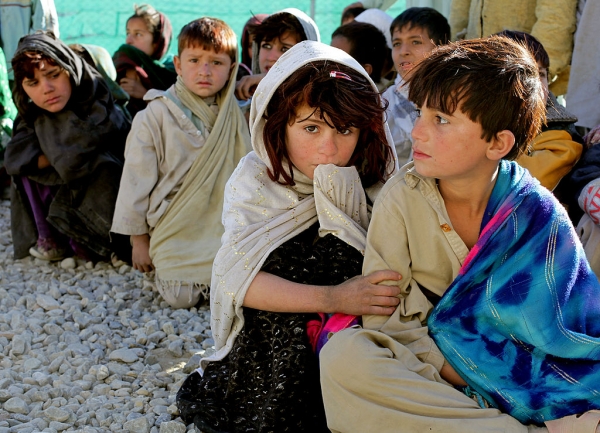The United Nations Assistance Mission in Afghanistan (UNAMA) Taskforce, as part of the Office of the UN High Commissioner for Human Rights (OHCHR), is devoted to protecting and promoting human rights in Afghanistan. It does so by undertaking numerous activities ranging from monitoring, to advocacy, to documentation. UNAMA and OHCHR recently published a report reviewing "the situation of human rights in Afghanistan, and technical assistance achievements in the field of human rights''. The report, which covers the period between 1 January and 30 November 2020, provides an overview of three key areas of UNAMA work, namely, protection of civilians and children in armed conflicts; elimination of violence against women and promotion of women's rights; and support for civic spaces and the integration of human rights into peace and reconciliation processes in Afghanistan.
UNAMA/OHCHR documented 7,850 civilian casualties (2,711 deaths and 5,139 injured) in the period covered by the report. This number represents a decrease of 21 per cent compared to the same period in 2019. According to UNAMA/OHCHR, the casualties are mainly attributable to anti-government attacks, pro-government forces, and, to a lesser extent, to the crossfire between parties, and explosive remnants of war (ERW). In spite of the seemingly encouraging overall decrease in casualties, the number of civilians harmed by the conflict between 12 September – the start of the Afghanistan Peace Negotiations – and 30 November remained almost unchanged, resembling the previous year's data. A similar figure also emerges when focusing on child casualties across the period under investigation. According to UNAMA/OHCHR, children faced a decrease of only 6% in incidents compared to 2019 and, additionaly, are subjected to underage recruitment, exploitation, and sexual violence, including the practice of bacha bazi - or child prostitution.
Girls under the age of 18 are subjected to sexual violence particularly frequently. For this reason UNAMA monitors progress made in the elimination of violence against women and the promotion of women's rights in Afghanistan. On 28 June 2020, the Afghan Ministry of Justice presented a draft of a family law to the Cabinet Legislative Committee. Under development for a decade, the contents of the law have raised serious human rights concerns among civil society organisations, regarding its potential violation of both the Convention on the Elimination of All Forms of Discrimination against Women, to which Afghanistan is a party, and the Afghan constitution. Concerns by the Afghanistan Independent Human Rights Commission were also raised about the government's decision to establish a directorate to prevent and prosecute sexual harassment in public and private organizations. The directorate’s employees are all men and very few cases have been prosecuted. Nevertheless, UNAMA continues to carry out awareness-raising activities and panel discussion on the elimination of violence against women, and is reaching a significant number of individuals– although due to the pandemic, some activities were put on hold.
The task force’s report also shed light on the increasing incidents involving civil society actors. According to UNAMA/OHCHR, 34 individuals, including journalists and media workers, and 58 civil society activists, were affected by incidents that caused eight victims' deaths in total. Therefore, the UNAMA/OHCHR strengthened its engagement with the Afghanistan Independent Human Rights Commission to reduce these incidents. The Commission plays a crucial role in protecting civilians and developing a victim-centred justice option capable of sustaining peace. Together, UMAMA and the Commission have so far organised 18 capacity-building and outreach events.
In conclusion, despite a reduction of 21 percent of civilian casualties compared to 2019, Afghanistan remained one of the deadliest places to live in 2020. Anti-government elements, pro-government forces, crossfire between the parties, and a high incidence of violence (including sexual violence) against civil society actors, women, and children,have been documented and condemned by UNAMA. Efforts must continue to ensure that the legislative framework protects and promotes civilians’, women's, and children’s rights. Based on this report, UNAMA urgently recommends that the parties agree to a cessation of hostilities, which can provide the basis to move toward a sustainable and inclusive peace.
To read more, visit:
https://undocs.org/A/HRC/46/69
Author: Martina Ravagnani; Editor: Alexander Collin




